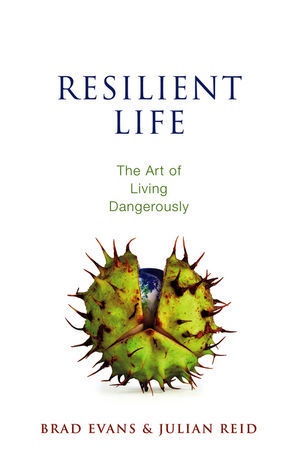Read more
What does it mean to live dangerously? This is not just a philosophical question or an ethical call to reflect upon our own individual recklessness. It is a deeply political issue, fundamental to the new doctrine of 'resilience' that is becoming a key term of art for governing planetary life in the 21st Century.
List of contents
Preface and Acknowledgements ix
1 Anthropocene 1
2 Insecure by Design 38
3 The Poverty of Vulnerability 68
4 Living Dangerously 91
5 Atmos 120
6 Endgames 141
7 The Art of Politics 167
Notes 204
Select Bibliography 223
Index 231
About the author
Brad Evans is Senior Lecturer in International Relations at the University of Bristol
Julian Reid is Professor of International Relations at the University
of Lapland, Finland
Summary
What does it mean to live dangerously? This is not just a philosophical question or an ethical call to reflect upon our own individual recklessness. It is a deeply political issue, fundamental to the new doctrine of resilience that is becoming a key term of art for governing planetary life in the 21st Century.
Report
"Brad Evans and Julian Reid provide a radical critique of the concept of resilience and its traveling companions of vulnerability, insecurity, and catastrophe"
NY Journal of Books
"One of the most radical and illuminating critiques of the currently fashionable notion of resilience."
Saskia Sassen, Columbia University
"Anyone interested in political theory after biopolitics must read this book."
Cary Wolfe, Rice University
"Evans and Reid do more than provide a devastating critique of resilience - they dare us to leave this barren landscape by having the confidence to embrace human life as art, and to assert our poetic and dramatic subjectivities against the dominance of the machine."
Mark Duffield, University of Bristol
"A tour de force. Brad Evans and Julian Reid mount a powerful indictment of the prophetic image of thought and the oppressive worldview of endless insecurity and threat that such thinking produces. If there is any possibility of welcoming and celebrating a world yet to come, one that is radically different from what currently is, we must, they insist, begin by moving beyond the inertia and defeatism that a catastrophic imaginary generates."
Adrian Parr, University of Cincinnati

